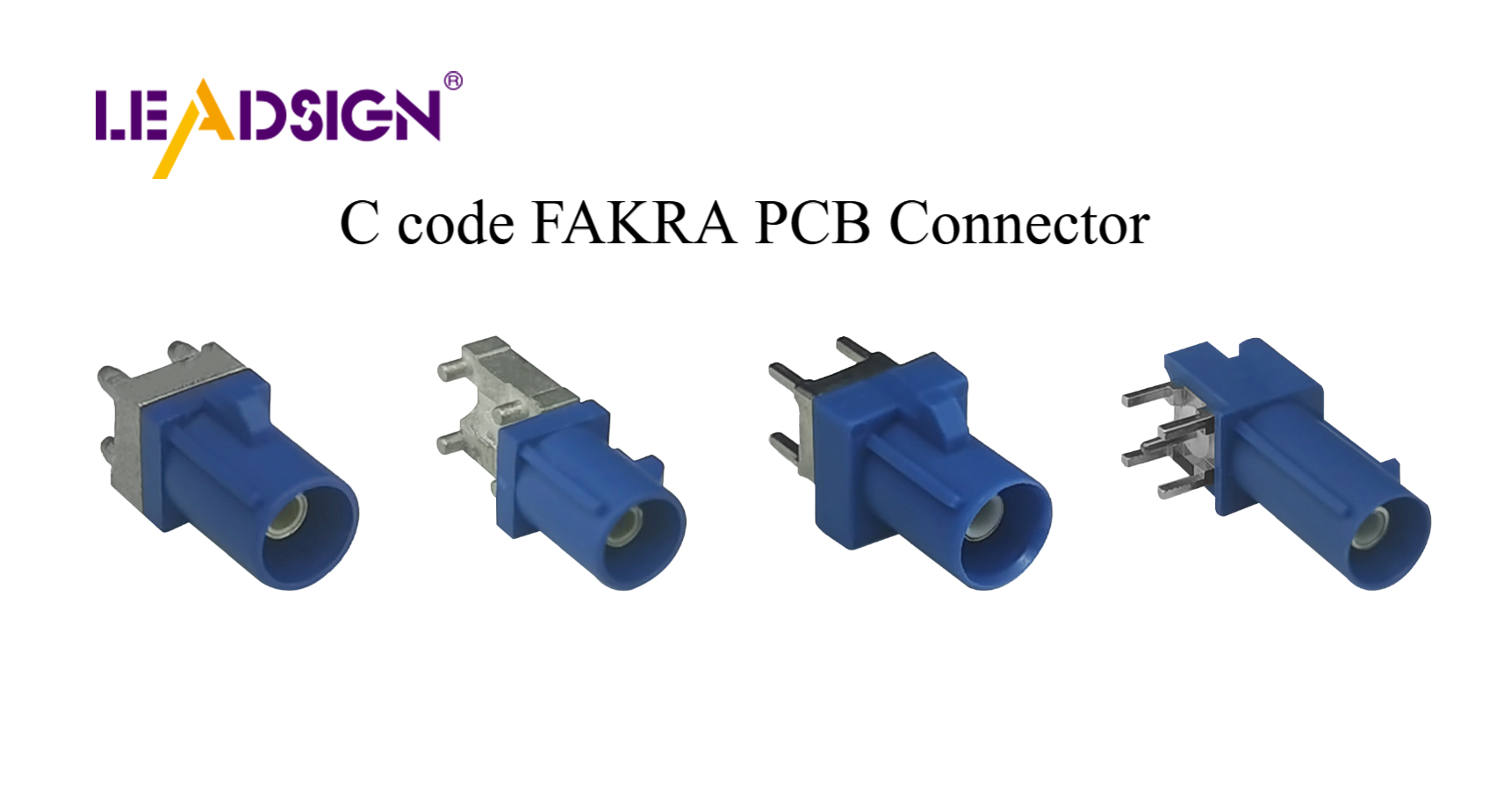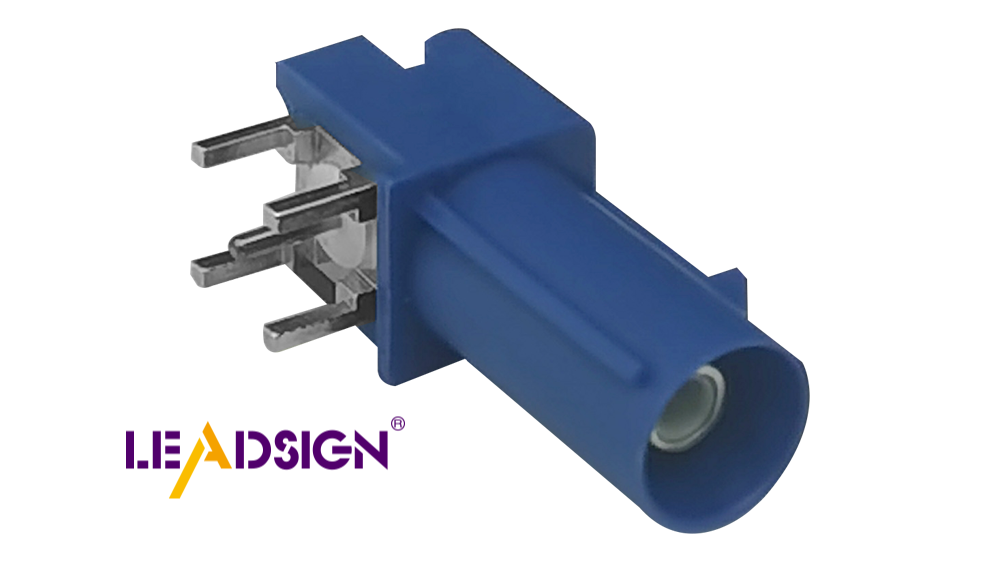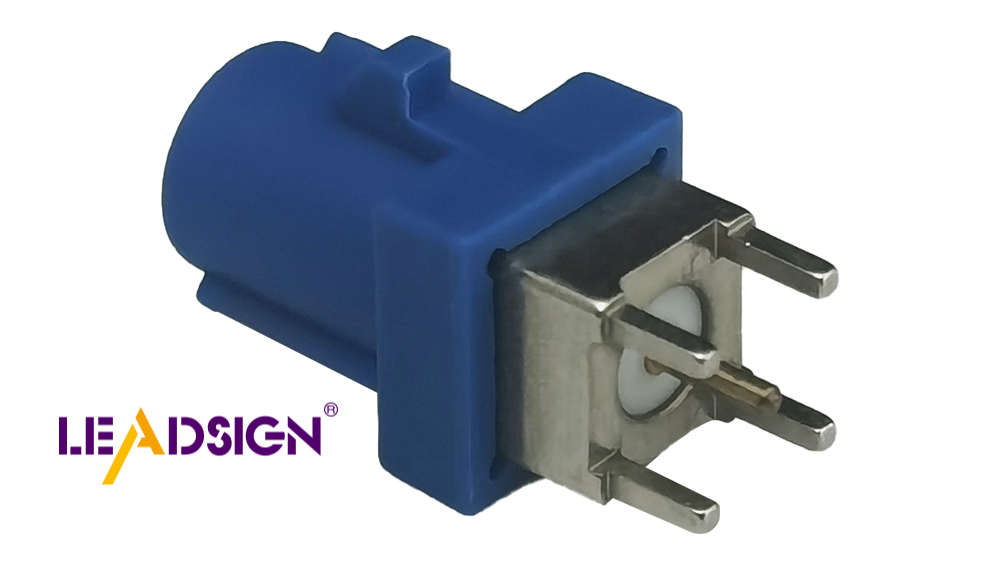Reviewing the Best Vehicle Connectors for Automotive Networking

Vehicle connectors are important for today's vehicles. They help different electronic parts communicate with each other, ensuring your car operates efficiently and remains safe. Choosing the right connector impacts its performance, durability, and compatibility with new technologies like electric engines and entertainment systems. As cars increasingly rely on electricity and advanced electronics, the demand for better connectors is rising. The global market for vehicle connectors is projected to grow significantly, reaching USD 20.6 billion by 2032, driven by the proliferation of electronic systems and electric vehicles.
Key Takeaways
Vehicle connectors are essential for modern cars, enabling communication between electronic systems for improved safety and performance.
Choosing the right connector involves considering compatibility with car standards, durability against harsh conditions, and performance for data and power management.
Investing in high-quality connectors can save money in the long run by reducing the need for frequent replacements and repairs.
The FAKRA connector is ideal for high-frequency tasks like GPS and radio, while the J1772 connector is perfect for charging electric vehicles at home or public stations.
For fast charging needs, the NACS connector is the best choice, supporting quick power-ups for electric cars on long trips.
USCAR-approved connectors offer versatility and reliability, making them suitable for various applications, including safety systems and infotainment.
Always prioritize connectors that are easy to find and replace to ensure your vehicle remains in good working condition without unnecessary delays.
Understanding Vehicle Connectors

What Are Vehicle Connectors?
Vehicle connectors are key parts of modern cars. They connect different systems to share power and information. These connectors help with important tasks like lights, engine control, and safety. They are built to handle tough conditions like heat, shaking, and water. This makes them last long and work well.
There are different kinds of vehicle connectors, each with a special job:
Power Connectors: These send power to systems like lights and engines.
Data Connectors: These move information between parts like sensors and screens.
Hybrid Connectors: These do both jobs, sending power and data together. They are great for electric cars and smart driving systems.
Knowing these types helps you pick the right one for your car.
The Role of Vehicle Connectors in Automotive Networking
Vehicle connectors are very important for car networking. They let sensors and controls talk to each other. For example, they connect sensors to control units for features like cruise control or lane warnings.
These connectors also support new car technologies. In electric cars, they help with charging and battery systems. In regular cars, they improve entertainment by linking screens, maps, and internet. They are also needed for smart driving tools like crash warnings and parking help.
By keeping connections strong, vehicle connectors make cars safer and better to use.
Criteria for Picking Vehicle Connectors
When picking connectors, focus on key factors. These decide how well they work and last.
Compatibility
Following car standards (like ISO, SAE, USCAR2-7)
Good connectors follow car standards like ISO or SAE. These rules make sure connectors are safe and work well. For example, USCAR2-7 checks if connectors can handle tough car conditions. Choosing these ensures they fit modern cars.
Working with EVs and regular cars
Connectors should work with all car types, like EVs or gas cars. They must connect parts like sensors and screens smoothly. EV connectors need to handle fast charging and battery systems. Picking versatile connectors avoids future problems.
Durability and Reliability
Handling heat, shaking, and water
Connectors face tough conditions daily. They must resist heat, shaking, and water to work well. For example, safety system connectors must work in extreme heat or constant movement. Strong connectors keep your car safe.
Lasting long with little upkeep
Durable connectors last longer and need less fixing. Good materials prevent electrical problems. This saves money and keeps your car running well. Investing in strong connectors avoids frequent replacements.
Performance
Fast data sharing
Modern cars need fast data sharing. Good connectors help systems like maps and safety tools work quickly. Faster data makes driving easier and better.
Managing power for chargers and systems
EVs need connectors that handle power well. They must support fast charging and share power across systems. Strong connectors keep your car running smoothly, even with many systems on.
Cost and Value for Money
Finding the right balance of price and quality
When picking vehicle connectors, aim for good value. A great connector combines fair cost with strong features and quality. High-quality ones use tough materials that resist damage. This helps them last longer and work well in hard conditions. For example, safety system connectors must meet strict rules to work everywhere. Buying these reduces failures and saves money over time.
Cheaper connectors may look like a good deal. But they often lack important things like strength or performance. Spending more on a reliable connector can stop frequent fixes and repairs. Always check what features you get for the price to make a smart choice.
Choosing connectors that are easy to find and replace
How easy it is to find a connector matters a lot. Pick connectors that are simple to buy and replace. This way, if one breaks, you won’t wait long or pay too much. Many connectors, like those meeting USCAR2-7 standards, are widely available. They work well with both electric and regular cars.
Easy replacement is also important. Simple designs make connectors quick to install, saving time and effort. For example, connectors for fast EV charging are made for easy use. Picking user-friendly connectors makes maintenance easier and avoids delays.
By focusing on availability and easy replacement, your car stays in good shape without extra trouble or cost.
Detailed Reviews of the Top Vehicle Connectors

FAKRA Connector
Key features and specifications
The FAKRA connector is strong and very useful. It works well for high-frequency tasks in modern cars. Its impedance is 50 Ω, and it handles frequencies from DC to 6 GHz. It allows fast data transfer, up to 8 Gbps. It can handle temperatures from -40 °C to +105 °C. It lasts for at least 25 connections and disconnections. Its double locking system keeps it secure. Waterproof versions add extra protection.
Pros and cons
Pros:
Very durable and lasts a long time.
Secure coding stops wrong connections.
Small size saves space and is easy to install.
Works well in tough conditions.
Cons:
Only works for specific uses like RF and GPS.
Ideal use cases
The FAKRA connector is great for GPS, radio antennas, and Bluetooth. It also works for wireless chargers and car heaters. It is reliable for sensors that detect and measure things.
J1772 Connector
Key features and specifications
The J1772 connector is common for charging electric cars in North America. It works with Level 1 and Level 2 chargers, making it flexible for home or public use. It handles up to 240 volts and 80 amps for efficient charging. Safety features include temperature checks and automatic shutoff. It fits most electric cars, making it very useful.
Pros and cons
Pros:
Easy to find at public charging spots.
Works for both slow and fast charging.
Strong design lasts a long time.
Fits many electric car models.
Cons:
Cannot be used for super-fast Level 3 charging.
Ideal use cases
The J1772 connector is best for Level 1 and Level 2 chargers. It is good for home setups and public stations. Its wide compatibility makes it great for daily charging needs.
NACS Connector
Key features and specifications
The NACS connector is made for fast charging electric cars. It works with Level 3 chargers for quick power-ups. It is small and light, making it easy to use. It handles high power for big batteries. Its design focuses on safety and simplicity.
Pros and cons
Pros:
Charges electric cars quickly.
Small size is easy to handle.
High power supports fast charging.
Works with modern charging stations.
Cons:
Hard to find outside North America.
Ideal use cases
The NACS connector is perfect for fast charging systems. It is great for electric car owners needing quick charges. It works well with Level 3 chargers for long trips.
USCAR-Approved Connectors
Key features and specifications
USCAR-approved connectors follow strict car standards for reliable performance. They work well in safety systems and modern infotainment setups. These connectors meet USCAR2-7 rules, handling heat, shaking, and water easily. Their strong design fits both electric and regular cars perfectly.
They allow fast data sharing, great for car networking. They also manage power well, useful for chargers and fast charging systems. Their small size saves space, and secure locks stop accidental unplugging. These connectors are tough and keep working for a long time.
Pros and cons
Pros:
Strong materials make them last a long time.
Built to handle tough conditions like heat and water.
Work with many car systems, including electric vehicles.
Can send both power and data for different uses.
Follow strict safety and quality rules.
Cons:
Hard to find in some areas, causing replacement delays.
Ideal use cases
USCAR-approved connectors are great for airbags and crash sensors. They also connect screens, speakers, and maps in infotainment systems. These connectors are perfect for charging stations, especially for electric cars. They handle power and data well, ideal for wireless chargers. If you need dependable connectors for fast charging or advanced systems, these are a smart pick.
Comparing the Best Vehicle Connectors
How the Connectors Perform Differently
Comparing data speeds and power abilities
The FAKRA, J1772, NACS, and USCAR-approved connectors work differently. The FAKRA connector is great for high-frequency tasks. It transfers data up to 8 Gbps, making it perfect for screens and sensors. The J1772 connector focuses on charging power. It handles 240 volts and 80 amps, working well with Level 1 and Level 2 chargers. This makes it ideal for charging electric cars at home or public places.
The NACS connector is best for fast charging. It works with Level 3 chargers, giving quick energy boosts. This is helpful for long trips when time matters. USCAR-approved connectors are good at both power and data sharing. They are made for safety systems and screens, working well in tough conditions.
Differences in compatibility and strength
Each connector has special features for compatibility and durability. The FAKRA connector is very strong. It works in temperatures from -40 °C to +105 °C. Its locking system keeps it secure in harsh places. But it mainly works for RF and GPS, so it’s less flexible.
The J1772 connector fits most electric cars, making it great for daily use. Its strong design lasts long, but it doesn’t support super-fast Level 3 charging. The NACS connector is small and easy to use. However, it’s mostly found in North America, limiting its global use.
USCAR-approved connectors work with both electric and regular cars. They meet strict rules like USCAR2-7, resisting heat, shaking, and water. They are versatile, connecting airbags, screens, and other car systems.
Picking the right vehicle connector is very important. It helps your car's systems work well and stay reliable. Each connector in this blog has special benefits:
FAKRA connectors are great for tasks like GPS and radio signals.
J1772 connectors are reliable for charging electric cars.
NACS connectors charge EVs quickly, perfect for long drives.
USCAR-approved connectors are strong and flexible, used in safety and entertainment systems.
For fast data sharing, FAKRA connectors are the best. If quick EV charging matters most, choose NACS connectors. For dependable use and wide compatibility, USCAR-approved connectors are a smart pick.
FAQ
What should I think about when picking a vehicle connector?
Focus on performance, compatibility, and durability. Performance means the connector moves power and data well. Compatibility ensures it works with your car, whether electric or gas-powered. Durability helps it survive heat, shaking, and water.
How can I check if a connector meets standards?
Look for certifications like ISO, SAE, or USCAR2-7. These show the connector passed safety and quality tests. For example, USCAR-approved connectors are tested for heat, shaking, and reliability.
Which connector works best for electric cars?
The J1772 connector is great for Level 1 and 2 charging. For faster charging, the NACS connector is better. Both handle EV power needs safely and efficiently.
Can one connector handle both power and data?
Yes, hybrid connectors do both jobs. They send power and data together, making them useful for infotainment and EV charging. They save space and are easy to install.
How can I make sure a connector lasts long?
Pick connectors made from strong materials that resist heat, water, and shaking. Look for waterproof designs and secure locks. Certified connectors are tested to last longer with less maintenance.
Are all connectors good for modern cars?
Not every connector fits all cars. Check the specs to match your car’s systems. For example, FAKRA connectors work well for GPS and radios, while USCAR-approved connectors fit many car types.
What makes a connector safe for critical systems?
Safety connectors must be tough and reliable. They should handle extreme conditions without breaking. Features like vibration resistance and secure locks are key for airbags and crash sensors.
How do I pick a connector for fast data?
Choose connectors with high data speeds. The FAKRA connector supports up to 8 Gbps, perfect for navigation and infotainment. Fast connectors help sensors and controls work smoothly.
Do all cars need waterproof connectors?
Waterproof connectors are important in wet or damp areas. They stop damage and keep working well. For example, waterproof FAKRA connectors are great for outdoor uses like antennas and GPS.
How can I find a connector that’s affordable and good?
Look for connectors that balance cost and quality. Avoid very cheap ones that might break easily. Certified connectors may cost more but last longer, saving money on repairs or replacements.
See Also
Enhancing Automotive Data Flow With Cutting-Edge Connectors
Transforming Vehicle Connectivity Through HFM Connector Benefits
Boosting Data Transfer Efficiency With High-Speed Connectors
Understanding the Advantages of Fakra Connectors in Vehicles
Significance of Fakra Connectors in Today's Automotive Design

